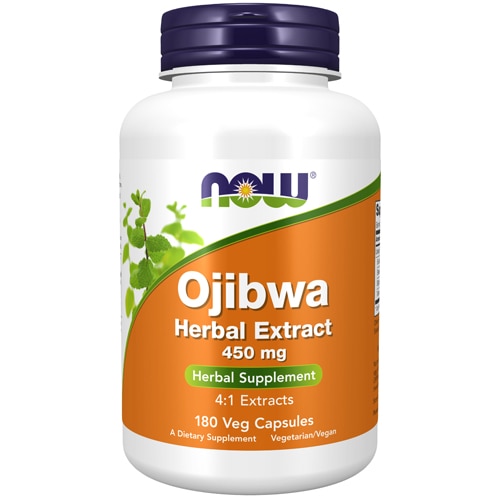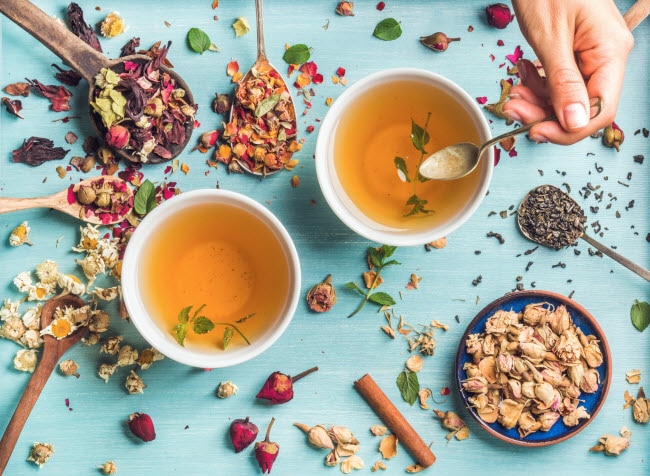The use of herbs—to promote healing, to perk up foods, to scent a space, or to please the eye—dates back to the start of civilization.
A dash here, a tea there—even novices to the world of rosemary and holy basil know that herbs can elevate a dish as brilliantly as they can soothe a soul. And while potent alone, combining herbs can take their potential to a whole new level.
With that in mind, here’s the basics on mixing herbs—and three combinations you might want to try:
The fundamentals of fusing herbs
From lavender to sage, many if not most herbs are terrific on their own. But as Mother Earth Living puts it, herb combinations can “have broad benefits because of synergy…Herbs, with hundreds of chemical constituents in a single plant, can have many effects at once.” In other words, herbs can work not only with one part of the body but also as a whole, thus fostering overall wellness. This is why we see orange peel and licorice together to relieve constipation, or passionflower, catnip and chamomile in teas that naturally promote sleep.†
But before you try any herb—alone, or combined with other compounds—it’s vital to get your physician’s approval.
Intrigued by the possibilities? Read on:
1. Turmeric
Turmeric has been dominating the herbal headlines in the last few years, thanks to recent research linking it to brain health. Native to India, the golden gem—one of the most extensively researched botanicals on the market—possesses a compound called curcumin that organically supports protection from free radicals as well as brain function and liver health. Taken alone, as a supplement, in food, as a tea or as a personal product, and it may boost whole-body health; paired with another herb and it may provide you with something close to magic.†
Pair it with:
Cinnamon and black pepper
Cinnamon may be best known as a spice but it’s also credited as a health-promting herb. Containing a compound called cinnamaldehyde, it operates as an antioxidant while also naturally supporting heart health and steadier blood sugar levels. Pair it with turmeric—in food, a turmeric-cinnamon beverage, tea or in an elixir of water, turmeric and raw honey—to reap more of both herbs’ possible advantages.†
An even more effective combination is turmeric and black pepper. As potentially beneficial as curcumin may be, it’s not readily absorbed in the body. But pipirine—the bioactive compound in black pepper—has been shown to enhance the absorption of specific composites, including curcumin. Used together and they might also naturally bolster digestion. Some choose to ground black pepper on dishes heavy on turmeric; others elect to add a dash of pepper to their turmeric-enriched bulletproof coffees.
But one of the choicest ways is to blend all three herbs mentioned here in a turmeric, cinnamon and black pepper latte: Heat almond or soy milk in a saucepan and add honey, turmeric and cinnamon. Pour into a blender—or mix with a spoon—and serve warm with a sprinkle of black pepper.
2. Ginger
Your grandmother got it right when she prescribed ginger ale and tea for your upset tummy: The root of this pungent herb has been used for over 2,000 years to aid in everything from indigestion to natural support for joints. In Traditional Chinese Medicine (TCM), ginger also thought to strengthen the yang energy of the kidneys and act as a sexual tonic. And if you’re feeling unmotivated—to attack that project or go for a run—ginger may act as a catalyst for action.
Pair it with:
Lemon balm and chamomile
As a kitchen staple, lemon—the seed-bearing fruit—can take grilled fish from okay to oh yay, but lemon herbs, particularly lemon balm, may also encourage greater ease and relief from intestinal pressure due to gas. Pair it with the calming properties of ginger and you may feel not only lighter but also experience smoother digestion.
To relieve cold symptoms, meanwhile, consider combining ginger with chamomile. There’s a reason why these two often appear in duos: Similar to ginger, chamomile may naturally soothe your digestive tract. (Bonus perks: It can also be used for skin and sleep purposes.) Blend all three of these much-loved herbs for a delicious, and nurturing, hot tea.
3. Echinacea
Echinacea frequently leads the pack of potentially-helpful herbs, accounting for a large part of the 133.1 billion (and growing) global market. Used for over 400 years by Native American Indians, the coneflower herb has long been prized for its potential ability to support digestion (specifically in terms of constipation) and aid in skin problems. But its biggest claim to fame—and a huge component of its popularity—is found in the way it organically encourages immune health.†
Pair it with:
Astragalus and goldenseal
Take your defense a step further by pairing echinacea with astragalus. A favorite in TCM, astragalus is rich in immune-enhancing flavonoids and polysaccharides. In fact, in TCM, it’s known to fortify Wei Qi, or protective Qi, through its potential to restore vitality, bolster metabolism and return the body to balance.
The appeal of another plant highly-valued by Native Americans, goldenseal, has transcended centuries in terms of popularity: Today, the woodland herb is one of the top five bestselling herbal products in the U.S. Recognized for its beneficial effects on mucous membranes, when goldenseal is combined with echinacea it can offer a higher level of support in keeping the body's natural defense mechanisms healthy. And what could possibly be better than that?
†These statements have not been approved by the Food and Drug Administration. These products are not intended to diagnose, treat, cure or prevent disease.




